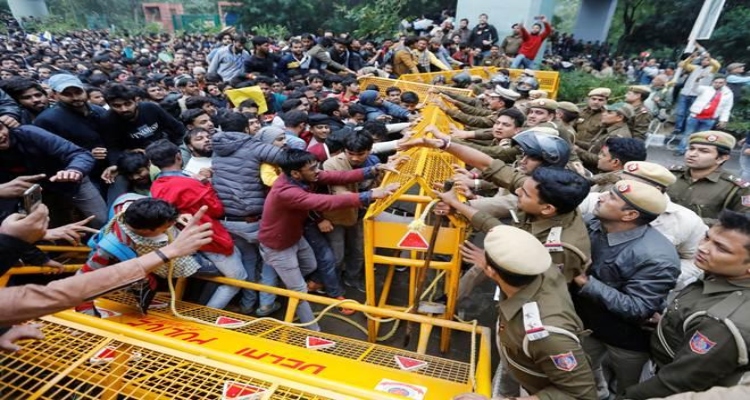
The Delhi High Court Judge Amit Sharma has recused himself from hearing a batch of petitions related to the violence that erupted at Jamia Millia Islamia following anti-CAA protests in December 2019.
The matter has been listed before a division bench headed by Justice Prathiba M Singh after a change in the roster of judges handling such cases.
“List before another bench, of which Justice Amit Sharma is not a member, on August 8,” said Justice Singh.
Several petitions were filed in the aftermath of the violence, seeking directions for the establishment of a Special Investigation Team (SIT), a Commission of Inquiry (CoI), or a fact-finding committee, as well as for medical treatment, compensation, and the registration of FIRs against errant police officers.
The petitioners include lawyers, Jamia Millia Islamia (JMI) students, residents of south Delhi’s Okhla—where the university is located—and the Imam of the Jama Masjid mosque opposite Parliament. They have argued for the constitution of an SIT independent of the police and central government to investigate the alleged police brutality against students. They contend that such a measure would “reassure the public” and restore faith in the system.
In response, the police have opposed the petitions, arguing that the relief sought cannot be granted since charge sheets have already been filed in connection with the violence cases and that any relief should have been sought before the subordinate court. The police assert that the protests, initially framed as student agitation, were part of a well-planned attempt by some local supporters to perpetrate violence. They claim a comprehensive investigation was conducted by the Crime Branch of the Delhi Police in relation to several FIRs.
The police have labeled the petitioners as “interlopers” and accused local politicians of using the protests at JMI as a “facade” to attack police and incite violence. They oppose the creation of an SIT to investigate the alleged police atrocities, as well as the transfer of FIRs against students to an independent agency, arguing that a “stranger” cannot request a judicial inquiry or investigation by a third-party agency. The police also contend that PIL petitioners cannot choose SIT members for investigating and prosecuting any alleged offenses.




